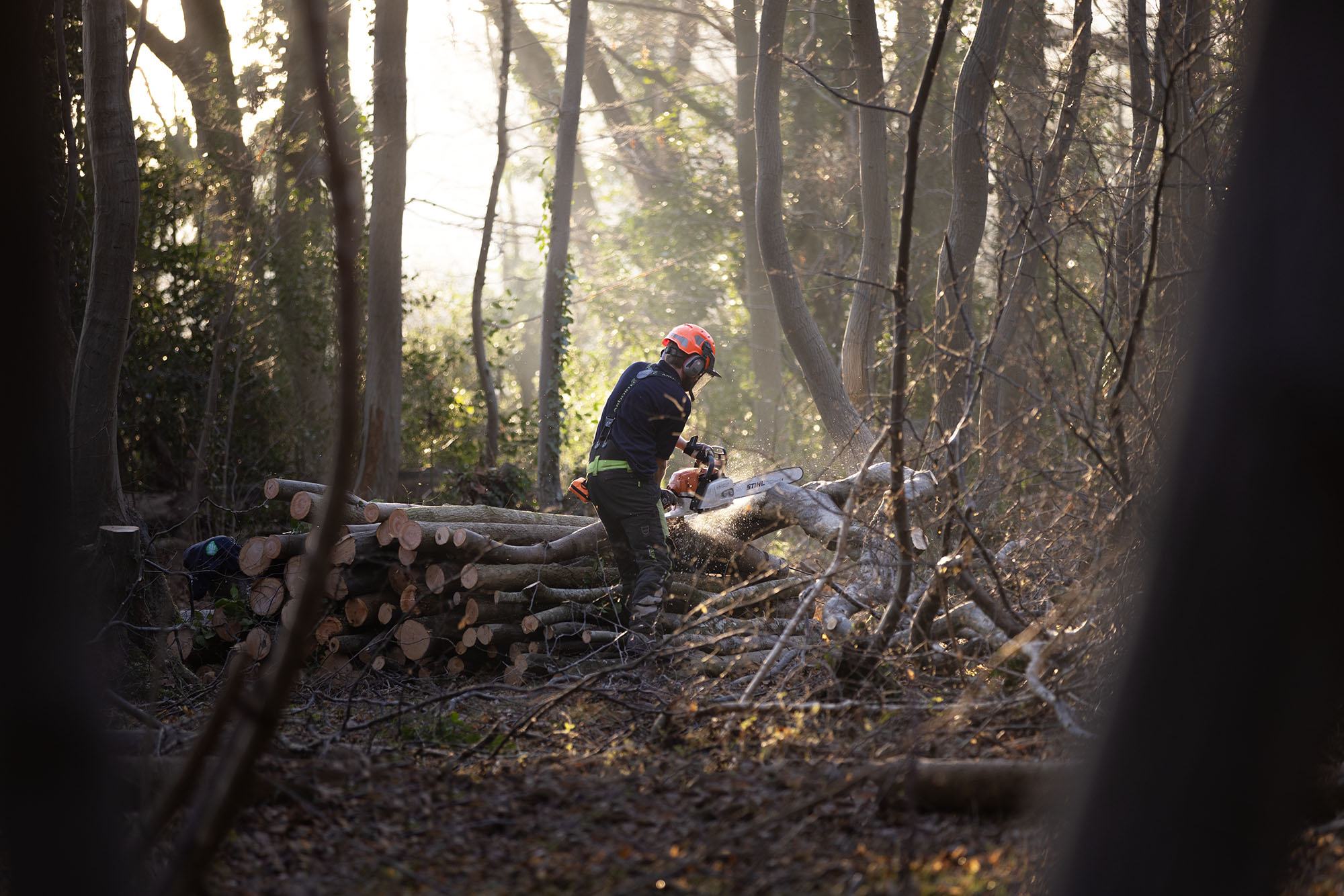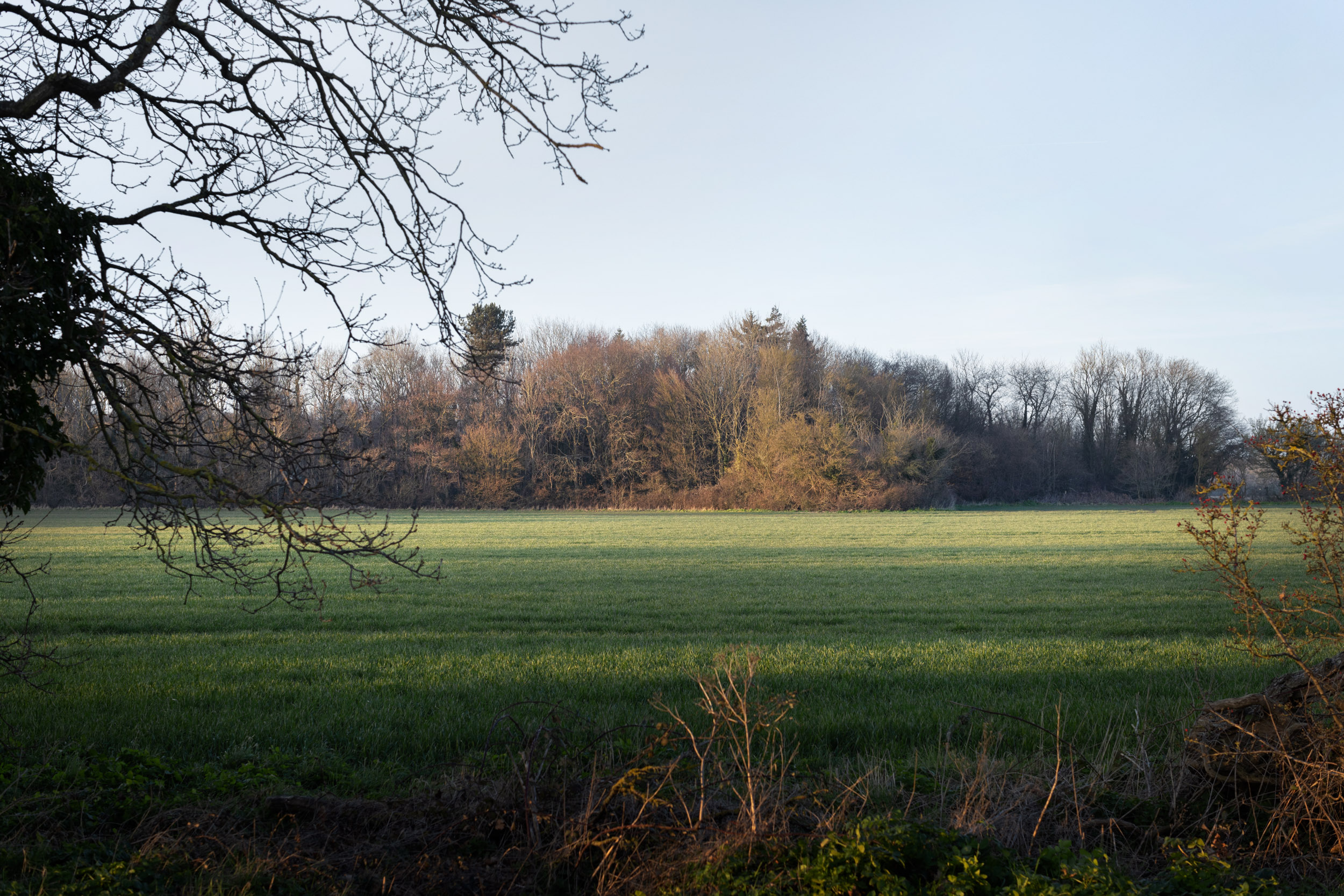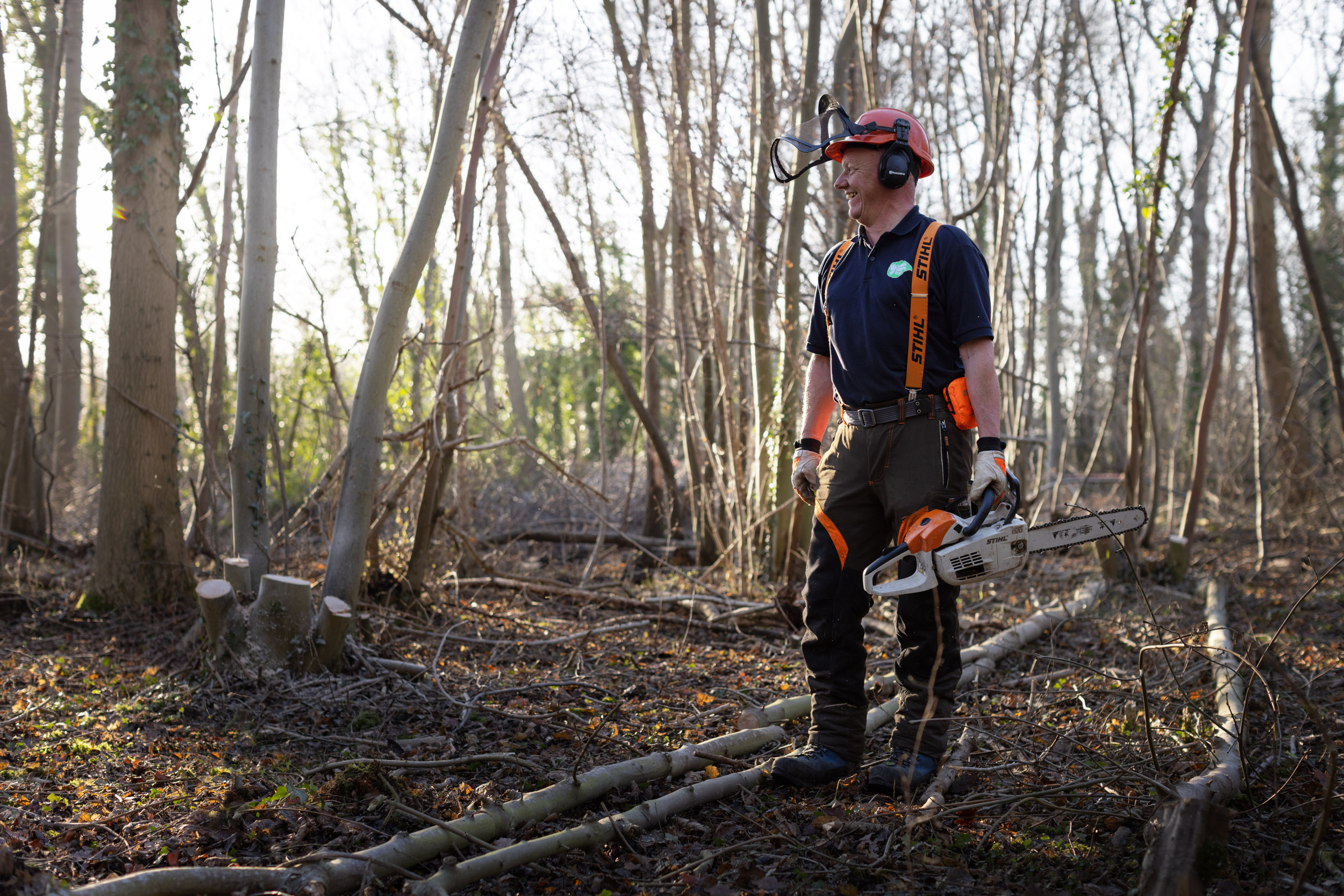Gavin Durrant at Suffolk Wildlife Trust Reydon Woods nature reserve.
Written and photographed for The Suffolk Magazine, August 2022

With all the current buzz around rewilding it’s easy to believe that good wildlife conservation and regeneration will be best achieved by a rigorous hands-off approach: just leave nature alone to get on with it. As is so often the case, things are never as simple as they first seem.
The pre-human English landscape, in which our diverse ecosystems established themselves, had influences such as wild populations of large grazing animals (and apex predators to control them), which were pushed out as we began to dominate the landscape. In the early days of agriculture, free-ranging pastoralism served much the same function, keeping grasses down and curtailing the succession of scrub and woodland. Contrary to commonly held beliefs, our island was never coast-to-coast broadleaf woodland, which would have limited the ability of such rich and diverse ecosystems to develop. In reality, diversity thrives in the disruption caused by large mammals, be they aurochs, the extinct ancestor of modern day cows, or humans!
Modern conservation organisations, which remove tracts of land from human utilisation, must sometimes find ways to mimic these old mechanisms that keep habitats stable and allow nature to thrive. In addition to small herds of grazing cattle or ponies, and our many wild deer, Suffolk Wildlife Trust also now has a small army of volunteers who, under the direction of the wardens, do much of the heavy-lifting that is necessary to maintain habitats such as marshy reed beds, heather heathland, wildflower meadows, and coppiced woodland. All of these landscapes, if left unattended, will quickly change into habitats that support less diverse ecosystems, as species like bracken, gorse, birch and alder are given the freedom to dominate at the expense of other less vigorous plants.

Suffolk Wildlife Trust currently relies on the support of some 1300 volunteers to do this laborious work - as well as critically important recording and monitoring tasks, and public engagement roles. Gavin Durrant volunteered for up to 12 hours a week for 8 years before he successfully applied for the role of assistant warden in the North East reserves group last October.
Gavin grew up in Aldeby, on the edge of the Waveney Valley where the marshes were his childhood playground. As he began his 35-year career in printing, which culminated in 19 years at Clays of Bungay (famous for printing the Harry Potter books) he continued to rely on escaping to the marshes as a way of relieving the pressures of working on a factory production line. As his working week comprised three long shifts, he found he had plenty of free time to indulge his love of the valley landscape and it’s wildlife, and turned to photography as a way of recording his observations. In his mid forties he began volunteering for Suffolk Wildlife Trust at Carlton Marshes, close to home, where weekly work parties of about a dozen are drawn from an inventory of about 50 stalwarts.
As well as tough physical tasks like clearing invasive plants and maintaining water-level systems, volunteers also perform critical recording work, like species monitoring; creating data sets that are used by wardens to track increases or declines and inform future management decisions. Volunteers also interact with visitors, enriching their experiences and inspiring them to understand and value the habitats and support the trusts’ work.
Gavin’s dedication to this unpaid work led the Trust to invest in his skill set, paying for him to train on chainsaws, brushcutters, ATV vehicles and first aid. With the recent expansion and development of Carlton Marshes reserve, a rare opportunity for an additional full-time role on the warden team appeared and Gavin had already gained experience and proved his usefulness. So at the age of 54 he decided it was a ‘now or never’ chance to forge a new career in the outdoor environment he loved.
Since starting his new role Gavin says ‘I’ve never felt fitter, physically and mentally; and definitely never slept so well!’ He has also enjoyed the camaraderie with his colleagues and volunteer groups, something he says had reduced as the print production lines he worked on became ever more automated and computerised.
The team of North East Reserves wardens are a nimble bunch: despite having their own reserves, they’re always ready to join forces on seasonal tasks that require a bigger team, especially when the task is outside the scope of volunteers. I met Gavin at Reydon Woods reserve where, with a small party of his colleagues, Jamie, Lewis and Dan, he was engaged in coppicing a ‘coup’ of about half an acre of ash and hornbeam.
This work is performed on a 20-year cycle. Historically, woods were coppiced for a host of products useful to people; poles and lumber for construction, firewood for homes and kilns, branches and leaves for animal fodder, to name just a few. They were the factory floors of medieval England.
There were many side benefits to these human activities: keeping the canopy open to let in light and allow other plants to flourish, prolonging the lifespan of the trees themselves, and creating a number of micro-habitats for a huge range of flora and fauna. In modern times, when the demand for woodland products has all but disappeared, we’re more accustomed to seeing abandoned woods that are high, dark and almost completely silent; beautiful in their own way, but supporting little wildlife.
With Gavin’s help, alongside his colleagues and with the support of so many volunteers, Suffolk Wildlife Trust aim to return the woods to their great abundance of the past!

We’re hoping over the coming year to feature some more of the quiet heroes who selflessly give their time to support the Trust’s critically-important work of protecting and enhancing Suffolk’s precious natural environments and wildlife. We’ll also take a little look at some of the varied reserves where they spend their free time and, maybe, inspire others to join the movement! If you’re interested in volunteering for SWT, do get in touch with Gemma Foreman, the Trust’s volunteer manager on gemma.foreman@suffolkwildlifetrust.org to find out more.